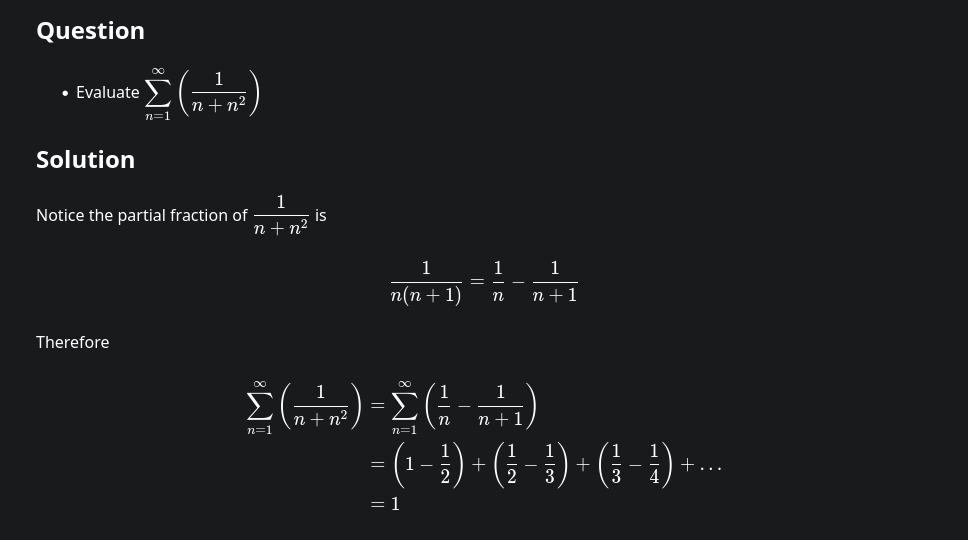- Evaluate
SUM(1/(n + n^2))from n = 1 to infty
Hint 1:
spoiler
expand the expression
Hint 2:
spoiler
partial fractions
Solution:
Since this is everyone’s favorite example of telescoping sums, let’s do it another way just for giggles.
Combinatorial proof
The denominator is P(n+1, 2) which is the number of ways for 2 specified horses to finish 1st and second in an n+1 horse race. So imagine you’re racing against horses numbered {1, 2, 3, …}. Either you win, which has probability 0 in the limit, or there is a lowest numbered horse, n, that finishes ahead of you. The probability that you beat horses {1,2, … , n-1} but lose to n is (n-1)! / (n+1)! or P(n+1, 2) or 1/(n2+n), the nth term of the series. Summing these mutually exclusive cases exhausts all outcomes except the infinitesimal possibility that you win. Therefore the infinite sum is exactly 1.
solution
With partial fractions:
1/(n + n²) = 1/(n(n+1)) = A/n + B/(n+1)
A(n+1) + Bn = 1
n = 0 gives A = 1, n = -1 gives B = -1
1/(n+n²) = 1/n - 1/(n+1)
Σ (n = 1 to ∞) 1/(n+n²) = Σ (n = 1 to ∞) 1/n - Σ (n = 1 to ∞) 1/(n+1)
= Σ (n = 1 to ∞) 1/n - Σ (n = 2 to ∞) 1/n
= 1/1 + Σ (n = 2 to ∞) 1/n - Σ (n = 2 to ∞) 1/n
= 1
Guessing this is the standard solution



